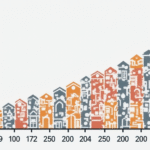Introduction
Adán Augusto López, the current senator and former governor of Tabasco representing Morena, claims that his administration successfully reduced violence in the region. According to data from the Executive Secretariat of the National Public Security System, homicides decreased from 633 to 424 annual victims between January 2019 and September 2021. Additionally, the total number of crimes dropped from over 52,000 to around 43,000 cases. High-impact crimes such as kidnapping, vehicle theft, extortion, and business robberies also declined.
López’s Claimed Success
López’s assertions of being an effective governor have bolstered his political image within Morena. However, investigative journalism and judicial sources, including protected witness testimonies and reports from the Federal Attorney General’s Office, reveal that this “peace” was maintained through pacts with criminal organizations. These sources indicate that, under López’s orders, then-Secretary of Security Hernán Bermúdez negotiated with leaders of “La Barredora” and other criminal cells to suppress disputes and reduce visible violence in exchange for tolerance in other activities, especially during the 2018 campaign.
Testimonies and Reports
A witness reported to the FGR that Bermúdez was appointed as secretary after ensuring electoral calm, in return for these concessions. Current Governor Javier May has stated that his administration does not hide or make deals with anyone and that the truth, no matter how harsh, must be known.
Succeeding Challenges
Carlos Merino, López’s interim successor, maintained Bermúdez in his position. However, the breakdown of agreements, federal investigations, and criminal power struggles led to a surge in crimes starting from 2022. Homicides, kidnappings, and thefts increased after the collapse of this fragile balance, reinforcing the notion that Tabasco’s calm was artificial and dependent on concessions.
López’s Controversial Fortune
Further complicating matters are the scandals surrounding López’s wealth. He has been accused of omitting the declaration of income amounting to 79 million pesos from questionable business-related transfers. López attributes this wealth to inheritances, cattle sales, rents, and notarial income. However, the substantial amount raises suspicions of tax evasion and possible money laundering.
Conflicting Identities
The contradiction between López’s millionaire profile and his left-wing political discourse, following years of militancy in the PRI, leaves him vulnerable. While he criticizes the “conservative right,” reconciling his wealth with an image of defending the poor and advocating for republican austerity proves challenging.
Implications of Pacting with Criminals
López being implicated in pacts with criminals raises questions about his integrity. Although temporarily reducing crimes, such pacts imply ceding territory and normalizing complicity instead of combating crime. This pragmatic approach prioritizes immediate stability over the rule of law, weakening institutions.
Key Questions and Answers
- What is Adán Augusto López’s claim? López asserts that his administration successfully reduced violence in Tabasco, citing decreased homicides and overall crime rates.
- What do investigations reveal about López’s claimed success? Investigative journalism and judicial sources suggest that López’s “peace” was maintained through pacts with criminal organizations, under the direction of then-Secretary of Security Hernán Bermúdez.
- What challenges followed López’s successor, Carlos Merino? The breakdown of agreements, federal investigations, and criminal power struggles led to a surge in crimes starting from 2022.
- What controversies surround López’s fortune? López is accused of omitting the declaration of substantial income from questionable business-related transfers, raising suspicions of tax evasion and money laundering.
- What are the implications of pacting with criminals? Pacting with criminals, while temporarily reducing crimes, implies ceding territory and normalizing complicity instead of combating crime, prioritizing immediate stability over the rule of law.






